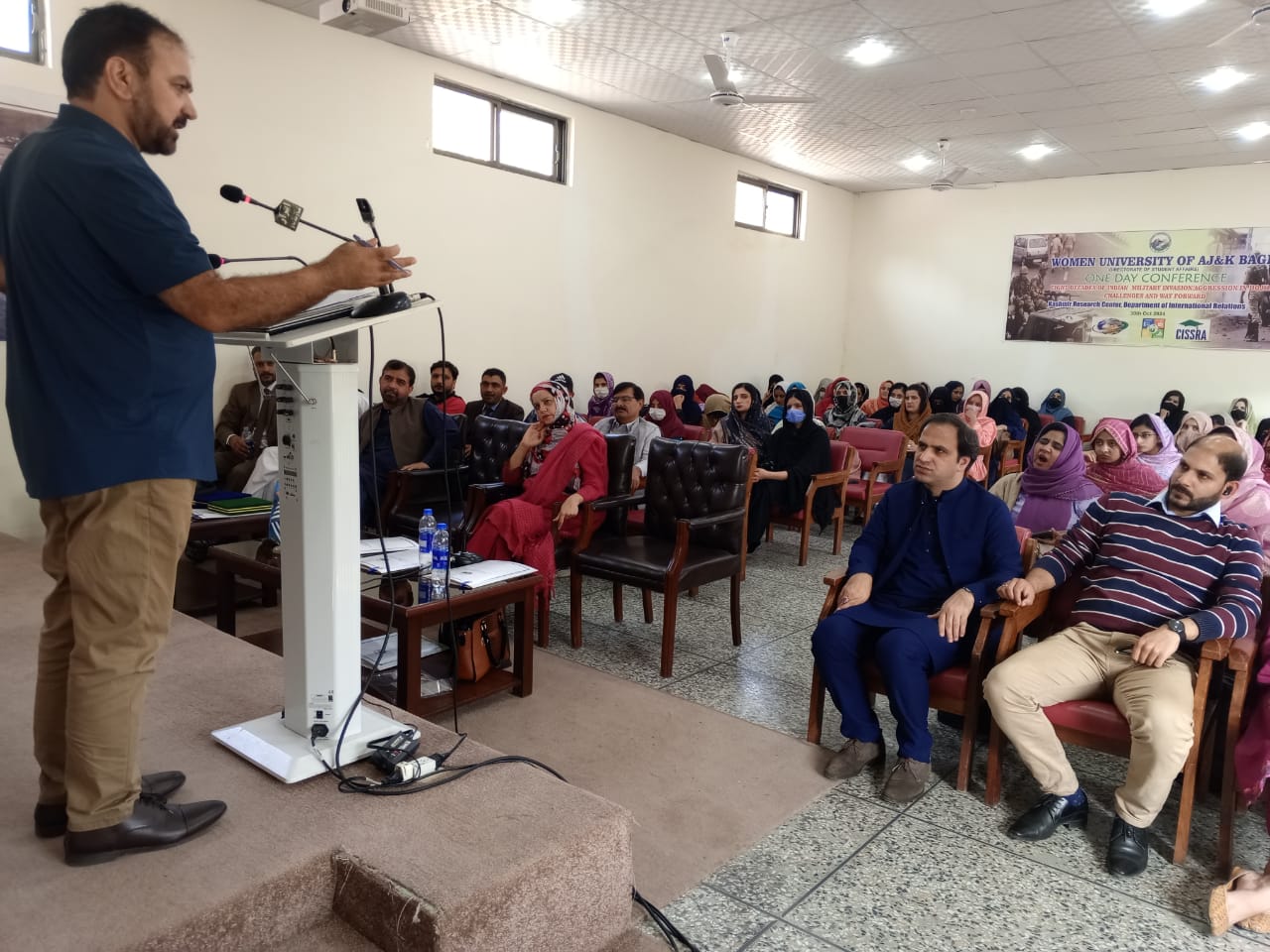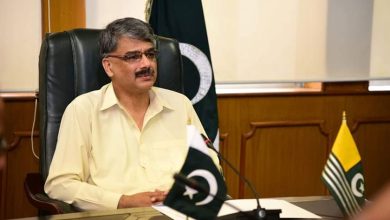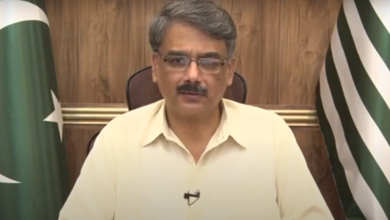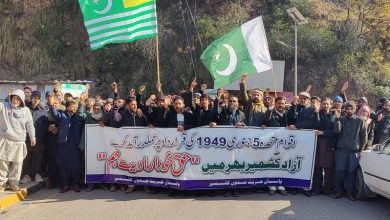Speakers discuss complexities of Kashmir conflict at Bagh university
Study reveals land-centric motives behind India's military presence in IIOJK

Bagh (AJK), : Speakers at a conference in Bagh, AJK, focused on the complexities of the Kashmir conflict, offering diverse perspectives on both historical and contemporary challenges.
According to Kashmir Media Service, the youth conference, held at Women’s University Bagh under the theme “Indian Military Invasion, Aggression, and Illegal Occupation,” was organized by the Institute of Dialogue, Development, and Diplomatic Studies (IDDDs) in collaboration with the Center for Integrated Social Sciences Research and Analysis (CISSRA). The event featured key discussions led by prominent speakers and academics.
Prof. Dr. Hameed Peerzada, Vice-Chancellor of Women’s University Bagh, opened the event by addressing delegates, faculty, and students. He stressed that the Kashmir issue extends beyond territorial claims, involving the fate of 12 million people whose future hinges on peace and stability within the region.
Dr. Waleed Rasool, Director of IDDDs and keynote speaker, presented a compelling research study detailing India’s strategic political maneuvers since 1947. He highlighted the land-centric motives behind India’s military presence in occupied Jammu and Kashmir, supported by quantitative data illustrating that the primary intent was to secure the territory strategically while neglecting the rights and aspirations of its people. Dr. Waleed Rasool noted that India’s reliance on occupational forces reflects its prioritization of control over the territory rather than the welfare of its inhabitants.
Additional Registrar Mr. Zaffar Iqbal underscored the need to grasp India’s diplomatic strategies to avoid arbitration and international mediation. He argued that while the pace of the movement may vary, maintaining a clear direction is vital for advancing Kashmir’s aspirations.
Dr. Shahid, Head of the International Relations Department, echoed the importance of youth in the Kashmiri movement, urging them to stay informed on regional and global developments.
The conference concluded with the presentation of shields and certificates to top paper presenters, recognizing their scholarly contributions that addressed the multifaceted dimensions of the Kashmir dispute.








